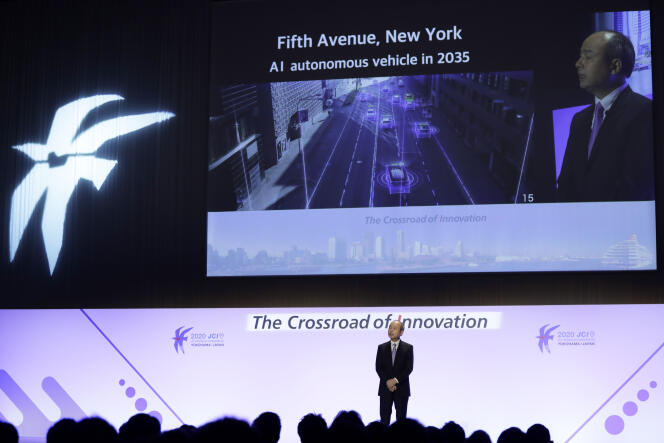


Is this the start of yet another revival? "The time is approaching for us to go on the counteroffensive," stated Masayoshi Son, the founder and chairman of SoftBank, a Japanese tech giant that has been facing significant financial difficulties since 2022, to his shareholders in June. Citing improving accounts, the eccentric leader promised a new phase in the development of a company built on more or less successful investments in hundreds of promising startups.
And once again, Son claims to have found the winning formula. This time, it's artificial intelligence. The future of SoftBank, a financier of new technologies for over two decades, will rely on AI. It has rekindled his desire to invest in technology, explained the CEO.
Released in mid-August, the results for the first quarter of its 2023-2024 financial year do indeed hint at a slight improvement for SoftBank. Admittedly, the losses amounted to 477.6 billion yen (€3 billion) between April and June, while analysts were expecting a modest profit of 75 billion yen. However, the results are improving: A year ago, SoftBank and its powerful VisionFund reported losses of 3,200 billion yen (€20.2 billion) over the same period.
The Tokyo-based company, which employs 55,000 people, aims to return to its heights after having plummeted, as has happened so often since its creation. But this has never shaken the confidence of Son, ranked 69th richest person in the world by Forbes magazine. The businessman has all the traits of a phoenix and a real talent for overcoming adversity. Born in 1957 in Tosu (on the island of Kyushu, in the southwest of the archipelago), he is the youngest of a family of Koreans who settled in Japan during the colonial period (1910-1945). His birth name was Son Jeong-ui. Choosing a Japanese first name was a way of avoiding discrimination.
His taste for business developed through observing his father, who set up one business after another. By the end of secondary school, his father was selling smuggled soju (Korean alcohol). He then went into pig breeding, before running a pachinko parlor (Japanese slot machine) and a consumer credit service.
This ability to adapt is reflected in Son's approach. At the age of 16, he was fascinated by Den Fujita (1926-2004), the founder of McDonald's Japan in 1971, who made the American giant's Japanese subsidiary a huge success. Through his efforts, the teenager obtained a 15-minute interview with his idol, who advised him to study computer science in the United States. Heeding this advice, Son enrolled at the University of California, Berkeley, where he demonstrated his talents as a businessman.
You have 59.71% of this article left to read. The rest is for subscribers only.
